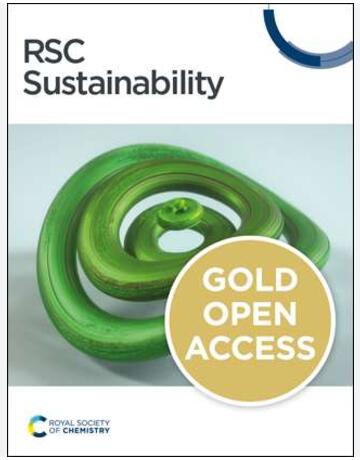三阶段机械产品制造过程碳排放核算模型
IF 3.3
3区 环境科学与生态学
Q2 ENVIRONMENTAL SCIENCES
引用次数: 0
摘要
碳核算对于制造业实现低碳转型和精益碳管理至关重要。要准确计算产品的碳足迹,就必须全面了解制造过程中的碳排放情况。本研究以生命周期评估(LCA)方法为基础,将机械产品从零件到成品的全过程分为三个阶段:零件(P)、装配(A)和测试(T)。通过分解各阶段的碳排放源,结合各阶段的特点,建立了一系列相应的碳排放核算模型。最后,建立了三片式球阀制造过程的三阶段碳排放模型,并验证了所提模型的有效性和可行性。结果表明,原材料消耗、能源消耗和运输是三片式球阀制造过程的主要碳排放源,分别占 35.6%、38.8% 和 17.6%。相应的碳排放量分别为 17.854 kgCO2e、19.405 kgCO2e 和 8.8 kgCO2e。通过这些结果,我们可以为制造企业的低碳转型提供一些理论和数据支持,也可以为通过工艺规划和车间调度实现低碳生产提供一些研究思路。本文章由计算机程序翻译,如有差异,请以英文原文为准。
Carbon Emission Accounting Model of Three-Stage Mechanical Products for Manufacturing Process
Carbon accounting is critical to manufacturing and achieving a low-carbon transition and lean carbon management. A comprehensive understanding of carbon emissions in manufacturing is essential to calculate a product’s carbon footprint accurately. Based on the life cycle assessment (LCA) method, this study divides the whole process of mechanical products from parts to finished products into three stages: parts (P), assembly (A), and testing (T). By decomposing each stage’s carbon emission sources and combining each stage’s characteristics, a series of corresponding carbon emission accounting models is established. Finally, the three-stage carbon emission model of the manufacturing process of a three-piece ball valve is established, and the validity and feasibility of the proposed model are verified. The results show that raw material consumption, energy consumption, and transportation are the primary sources of carbon emissions in the manufacturing process of three-piece ball valves, accounting for 35.6%, 38.8%, and 17.6%, respectively. The corresponding carbon emissions were 17.854 kgCO2e, 19.405 kgCO2e, and 8.8 kgCO2e, respectively. Through these results, we can provide some theoretical and data support for the low-carbon transformation of manufacturing enterprises as well as some research ideas for realizing low-carbon production through process planning and shop scheduling.
求助全文
通过发布文献求助,成功后即可免费获取论文全文。
去求助
来源期刊

Sustainability
ENVIRONMENTAL SCIENCES-ENVIRONMENTAL SCIENCES
CiteScore
6.80
自引率
20.50%
发文量
14120
审稿时长
17.72 days
期刊介绍:
Sustainability (ISSN 2071-1050) is an international and cross-disciplinary scholarly, open access journal of environmental, cultural, economic and social sustainability of human beings, which provides an advanced forum for studies related to sustainability and sustainable development. It publishes reviews, regular research papers, communications and short notes, and there is no restriction on the length of the papers. Our aim is to encourage scientists to publish their experimental and theoretical research relating to natural sciences, social sciences and humanities in as much detail as possible in order to promote scientific predictions and impact assessments of global change and development. Full experimental and methodical details must be provided so that the results can be reproduced.
 求助内容:
求助内容: 应助结果提醒方式:
应助结果提醒方式:


